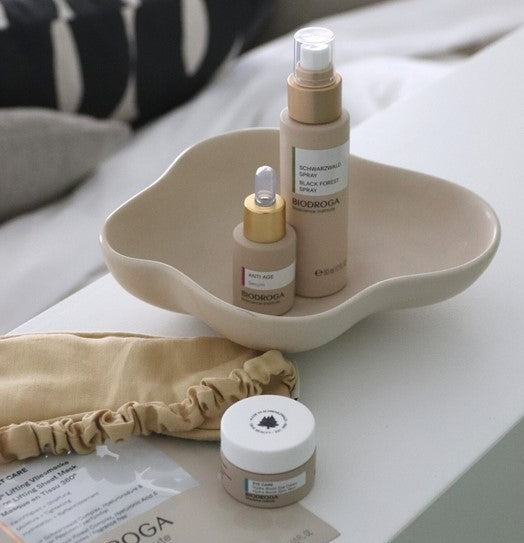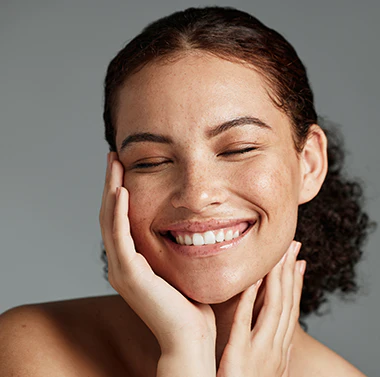
Medical-Grade Skincare vs. Clean Beauty: What’s the Difference?
Medical-Grade Skincare vs. Clean Beauty: What’s the Difference?
When it comes to skincare, the terms medical-grade and clean beauty are often used interchangeably, but they refer to two distinct categories with unique philosophies, ingredient lists, and purposes. While both aim to improve skin health, they have different approaches, and understanding the difference between the two can help you make more informed decisions for your skin.
What is Medical-Grade Skincare?
Medical-grade skincare refers to products that are formulated with higher concentrations of active ingredients and are typically available only through licensed dermatologists, estheticians, or medical professionals. These products are designed to treat specific skin conditions like acne, hyperpigmentation, fine lines, and sun damage.
One of the primary advantages of medical-grade products is their ability to target skin concerns with scientifically-backed ingredients. These formulas often contain stronger concentrations of actives like retinoids, glycolic acid, peptides, or antioxidants that can deliver noticeable, fast results. For example, a medical-grade retinol can help accelerate cell turnover, significantly reducing the appearance of fine lines or acne scars.
These products are also rigorously tested and typically come with clinical evidence supporting their claims. They may require a consultation with a professional before use, particularly because of their potency. While medical-grade skincare is designed to address specific skin concerns, it also often carries a higher price tag due to the scientific research and testing involved in its creation.
However, the downside to medical-grade skincare is that its ingredients can sometimes be harsh, especially for those with sensitive skin. It’s not uncommon for these products to cause irritation or dryness, particularly when first introduced into a skincare routine. Additionally, medical-grade products may contain preservatives, synthetic fragrances, and other chemicals that are not typically found in clean beauty products.
What is Clean Beauty?
Clean beauty, on the other hand, focuses on the safety and sustainability of the products. This category emphasizes the use of non-toxic, eco-friendly, and cruelty-free ingredients. Clean beauty products avoid potentially harmful chemicals like parabens, sulfates, phthalates, and artificial fragrances, which can irritate the skin or cause long-term damage. Instead, clean beauty brands prioritize natural, organic, and plant-based ingredients, with a focus on overall skin wellness rather than specific skin conditions.
The clean beauty movement is also about transparency, with many brands providing full ingredient lists and making sure consumers are aware of the sourcing and ethical practices behind their products. Additionally, clean beauty brands often focus on environmentally friendly packaging and sustainable sourcing practices.
While clean beauty products tend to be gentler on the skin due to their focus on natural ingredients, they can be less potent than medical-grade products. For instance, clean beauty formulations may contain lower concentrations of actives like retinol or vitamin C, which might mean it takes longer to see results for skin concerns such as acne or wrinkles.
Key Differences Between Medical-Grade and Clean Beauty
- Ingredients and Potency: Medical-grade products contain higher concentrations of active ingredients to target specific skin issues, while clean beauty products are gentler, focusing on non-toxic, natural ingredients.
- Purpose: Medical-grade skincare is designed for people with targeted skin concerns and aims to deliver fast, visible results. Clean beauty focuses on overall skin health and avoiding harmful chemicals.
- Approach: Medical-grade products often require professional consultation or supervision due to their strength, whereas clean beauty is available to the general public and tends to focus on wellness, sustainability, and environmental impact.
- Skin Sensitivity: Clean beauty is typically more suitable for sensitive skin because it avoids irritating chemicals, whereas medical-grade products can sometimes cause dryness, irritation, or sensitivity due to their potent formulas.
Which One Is Right for You?
Choosing between medical-grade and clean beauty depends largely on your skin type, goals, and personal preferences. If you're dealing with specific skin issues that need targeted treatment, like severe acne or hyperpigmentation, medical-grade products might be a better option. However, if you're looking for a gentle, holistic skincare routine that prioritizes non-toxic ingredients and sustainability, clean beauty may be more suited to your needs.
Ultimately, both approaches have their merits, and many people choose to combine the two. You might opt for medical-grade products to address specific concerns, while incorporating clean beauty products to nourish and maintain overall skin health.
Both medical-grade and clean beauty options can be highly effective, depending on your skincare needs. Understanding what each offers can help you make the best decision for your skin’s health.


